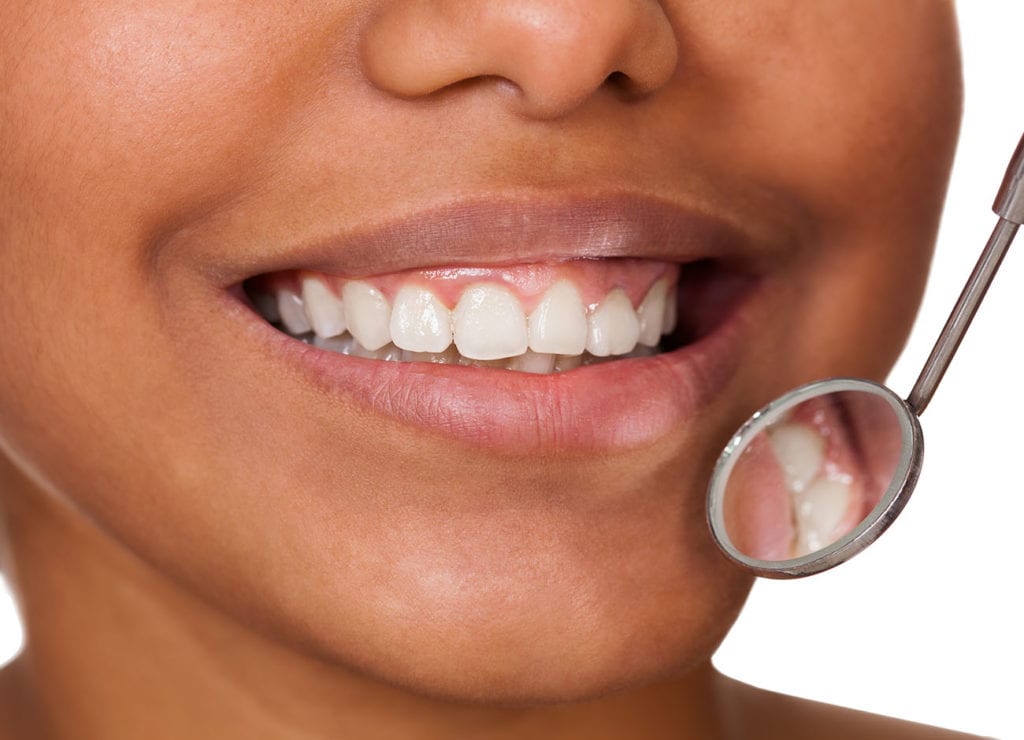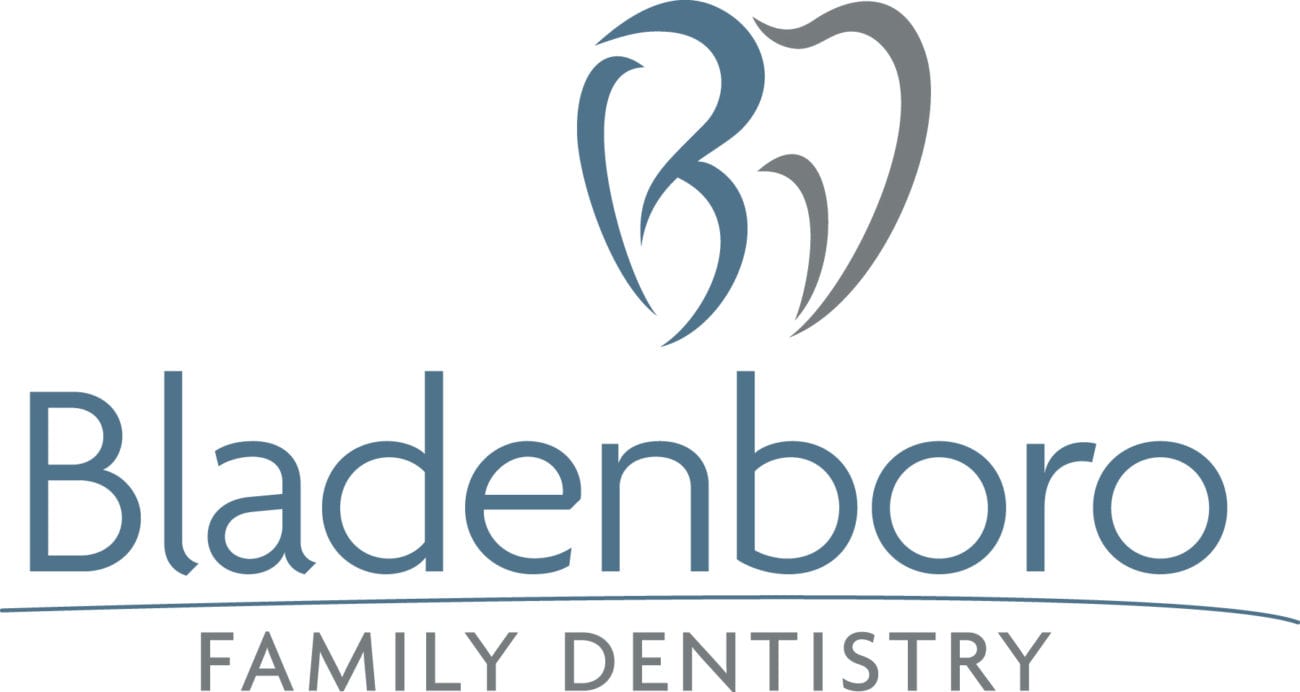Dr. Shannon French offers periodontal disease treatment in Bladenboro, NC. Periodontitis, also known as gum disease, is a common yet serious dental problem. It begins as gingivitis or gum inflammation. Bacteria irritates and inflames the gums and can eventually cause gum recession bone loss and other oral health issues.
At Bladenboro Family Dentistry, Dr. French and her team help reverse the early stages of gum disease to keep the health of the teeth and gums intact. We treat every patient with care and listen to their concerns so we can find the best treatment method possible.

Common Symptoms of Gum Disease
Treating gum disease helps restore tooth and gum health. Knowing the signs of periodontitis so you can receive prompt treatment in our Bladenboro dental office is important. The most common signs of gum disease are:
- Bleeding gums
- Red and swollen gums
- Gum recession
- Tooth and bone loss
- Shifting teeth
- Loose teeth
Please contact our office if you have noticed any developing gum issues. It is important to target gum problems early on as they can quickly lead to tooth loss. The bacteria that inflame the gums can enter the bloodstream and lead to heart problems. Keeping the health of your teeth and gums in check also ensures that you are less prone to issues with your heart health.
Stages of Gum Disease
There are multiple stages of periodontal disease and the disease progresses very quickly. It is important to recognize the signs and symptoms of gum disease so that you can get treatment sooner rather than later. The sooner we begin treatment, the easier gum disease is to reverse, and the less likely it is to cause permanent damage.
Gingivitis– The first stage of periodontal disease is gingivitis. Most patients experience bleeding while brushing and mild inflammation. This stage of gum disease can be reversed by deep dental cleaning and an increase in oral care. It is crucial that patients brush and floss their teeth twice a day to remove bacteria and infections.
Slight Periodontal Disease– The second stage of periodontal disease is known as slight periodontitis. Once patients reach this stage gums begin to become more inflamed and pull away from teeth. This creates pockets that store bacteria and allow them to attack the root of the tooth. Gum redness, pockets, and minor tenderness are common signs of this stage.
Moderate Periodontal Disease– The third stage of gum disease is moderate periodontitis. Once patients have reached this stage previous damage is irreversible however treatment is used to prevent the disease from progressing. At this point, patients may feel that their teeth are loose, and their gums are tender.
Advanced Periodontal Disease– The last stage of periodontal disease is known as advanced periodontal disease. This is the most severe stage of the disease, and tooth loss is a serious risk. Treatment can prevent the disease from worsening, however, it cannot reverse previous damage. Patients may experience tooth loss, jaw bone deterioration, gum recession, and pain while chewing.
Treating Gum Disease at Bladenboro Family Dentistry
Our team can help you combat gum disease at routine dental visits. If you have signs of red, swollen, or irritated gums, we can provide you with an antibacterial rinse. This rinse removes harmful bacteria from the teeth and gums to prevent them from multiplying.
As patients reach more severe stages of the disease, scaling and root planing are effective treatments we use in tandem to eliminate plaque and bacteria. Scaling removes plaque buildup from around and even beneath the gums. Root planing smooths down the rough surfaces of infected tooth roots and helps combat gum recession.
Gum grafting may be used for patients who have had to have infected gum tissue removed. We will remove tissues from another part of the mouth and suture it to the area where the tissue was infected. This helps restore gums and provide structure for teeth.
Periodontal Disease Treatment FAQs
Do you have further questions about periodontal disease and how it can be treated? Continue reading to learn more and find answers to frequently asked questions in our office.
How long does periodontal disease take to heal?
Depending on the stage of your gum disease, it may take anywhere from a few days to a few months to recover from gum disease. The further the stage your gum disease has reached, the longer it will take to recover. Once patients have reached a certain stage in the disease, damage cannot be reversed so it is important to begin treatment as soon as possible.
What are the stages of periodontitis?
The four stages of periodontitis include gingivitis, mild periodontal disease, moderate periodontal disease, and severe periodontal disease. As the disease progresses it becomes increasingly more difficult to treat and prevent damage. The further patients progress through the disease the more severe damage becomes, and they have a higher risk of permanent damage such as tooth loss.
Can gums grow back after periodontal disease?
Periodontal disease can cause receding gums. When this occurs your gums cannot grow back. There are options to prevent receding gums from getting worse, but there is no way for them to grow back. Gum grafting is a common option to replace receding gums, however, this will not cause them to grow back.
How soon can I eat after periodontal surgery?
Periodontal surgery should recover in about two weeks. After your surgery, we recommend sticking to a soft diet and avoiding excessive pressure on your gums. Foods that are included in a soft diet include yogurt, smoothies, pasta, ice cream, etc. Until you feel comfortable chewing on your gums we recommend that you stick to soft foods and avoid chewing.
How long does periodontal treatment take?
Gum surgery usually takes about 2 hours to finish. Some surgical procedures call for the patient to be completely or partially unconscious. However, the use of a local anesthetic to numb the gums prior to surgery may cause the procedure to take longer. If you are numbed for your surgery we recommend scheduling someone to drive you to and from your appointment.
How do you prepare for periodontal treatment?
You may need to stop taking some medications, such as aspirin, pain relievers, and blood thinners, a couple of weeks before surgery. It is also crucial to get a good night’s rest before your procedure. We recommend abstaining from nicotine and alcohol at least 24 hours prior to the operation.
How often should I get my teeth cleaned with periodontal disease?
We recommend that patients with periodontal disease visit our office for regular cleanings every three months. This is more frequent than most of our patients visit our office because we need to keep an eye on your gum disease and determine the rate at which it is progressing.
How painful is a periodontal cleaning?
Deep teeth cleaning can be difficult and sometimes uncomfortable, but it should not hurt. Before a deep cleaning, we will give you a local anesthetic, such as a gel or an injection. This is to ensure that you are kept pain-free and comfortable throughout your entire cleaning.
Have you noticed that your gums bleed after you brush and floss your teeth? Are your gums sensitive to hot and cold foods? Call our office for periodontal care today at 910-469-4592. You can also schedule an appointment with Dr. French and her team online. Our office serves patients from Bladenboro, Clarkton, and Fayetteville, North Carolina.
